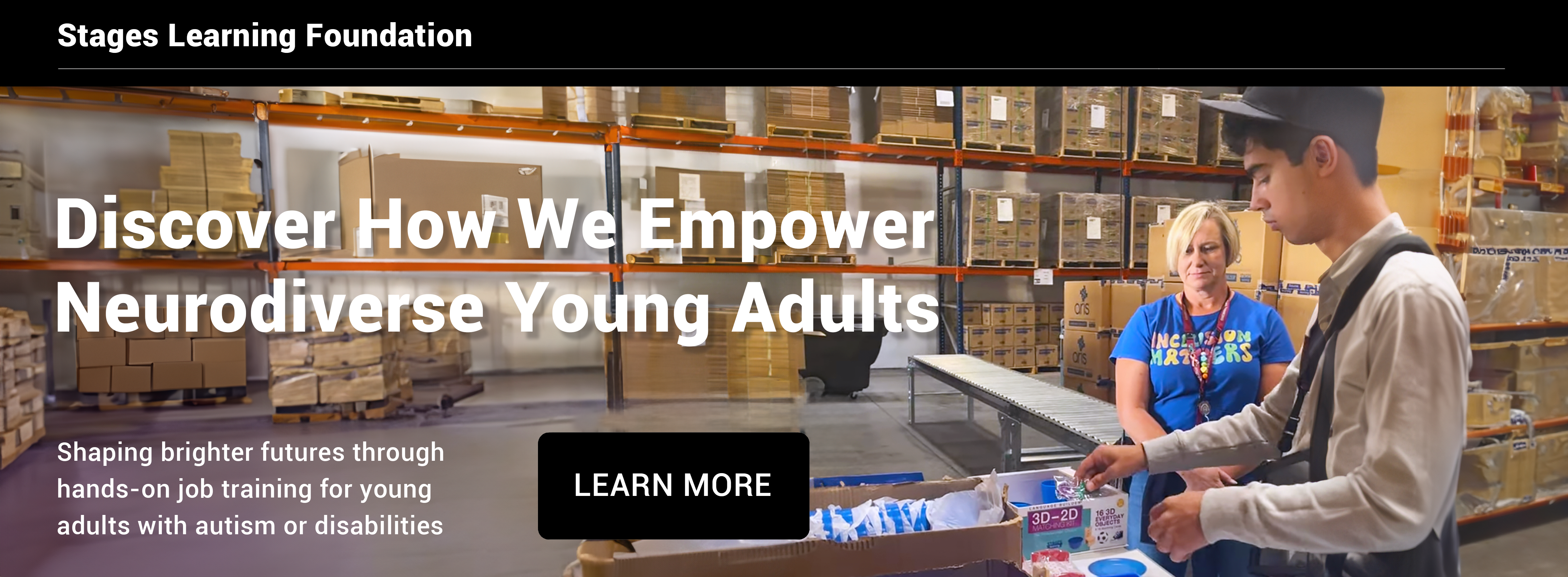What Is the IBCCES?
The International Board of Credentialing and Continuing Education Standards (IBCCES) leads the way in professional training and continuing education for autism
Continuing education and professional training are two crucial components necessary for remaining up-to-date on the best practices and interventions in any field. Perhaps now more than ever, evidence-based treatments for cognitive disorders and autism are in high demand, and it is essential to ensure that professionals stay current with these practices to ensure that services are delivered consistently, predictably, and efficiently.
Just as we would not take an aging parent to an unskilled surgeon to be operated on, the same holds when considering treatment for individuals with cognitive disorders and autism. Research-based best practices implemented by knowledgeable professionals in the field are always the best way to go, and governing bodies exist to oversee the training and certification of professionals providing services to these populations.

The International Board of Credentialing and Continuing Education Standards (IBCCES)
The International Board of Credentialing and Continuing Education Standards is well-known for being the global leader in professional training and continuing education for autism spectrum disorder (ASD) and other cognitive disorders. While supporting professional standards, the IBCCES strives to provide well-rounded training and continuing education that is up-to-date and evidence-based according to research, interventions, outcomes, and best practices.
Training is provided in the following areas:
-
Education
-
Healthcare
-
Corporate
-
Public safety
-
Teletherapy
-
Travel and Entertainment
Leaders in the field are encouraged to regularly “improve the outcomes for the individuals they serve,” and training programs backed by the IBCCES “are recognized around the world as the leading benchmark for training and certification in the areas of autism and other cognitive disorders.”1
Several different certification programs are offered through the IBCCES, including:
-
Certified Autism Specialist (CAS)
-
Autism Certificate (AC)
-
Advanced Certified Autism Specialist (ACAS)
-
Advanced Autism Certificate (AAC)
-
Board Certified Cognitive Specialist (BCCS)
-
Certified Cognitive Coach (CCC)
-
Board Certified Telepractice Specialist (BCTS)
-
Telepractice Facilitator Certificate (TFC)
-
Student Mental Health Certification (SMHC)
-
Certified Autism Travel Professional (CATP)
1. Certified Autism Specialist (CAS) and Autism Certificate (AC)
The Certified Autism Specialist (CAS) and Autism Certificate (AC) training programs equip professionals who provide services to autistic individuals to effectively support the needs of those they serve while understanding challenges that may arise in the academic, home, and leisure settings.
The CAS program is intended for professionals who hold a master’s degree and 2 years of experience (or a bachelor’s degree and 10 years of experience in the field of autism); however, the AC credential can be obtained by anyone currently providing services to an autistic individual or group of autistic individuals.2
Both options provide professional training in autism, and the competencies studied include:
-
An overview of autism
-
Comorbidities
-
Parent communication
-
Early childhood identification
-
Program development
-
Behavior modification
Advanced training in autism spectrum disorders is also offered through the IBCCES for those who already hold a CAS or AC designation.
2. Advanced Certified Autism Specialist (ACAS) and Advanced Autism Certificate (AAC)
The Advanced Certified Autism Specialist (ACAS) and Advanced Autism Certificate (AAC) provide further professional training and continuing education in the areas of:
-
Behavior
-
Ethics
-
Discrete trial training (DTT)
-
Behavioral contingencies
These programs are intended for individuals who already hold the CAS or AC certification through the IBCCES and wish to seek more advanced training in autism and applied behavior analysis (ABA) practices.3 ACAS and AAC training modules help improve outcomes for autistic individuals while certificants gain professional recognition, implement new strategies to help overcome common challenges, and learn about current best practices in the field.
3. Board Certified Cognitive Specialist (BCCS) and Certified Cognitive Coach (CCC)
Additionally, the Board Certified Cognitive Specialist (BCCS) and Certified Cognitive Coach (CCC) training programs offered through the IBCCES provide well-rounded training on multiple cognitive disorders–including dyslexia, attention deficit hyperactivity disorder (ADHD), autism spectrum disorder (ASD), and anxiety.
During the training and renewal process, professionals learn about topics such as:
-
Early childhood identification
-
Inclusion
-
Cognitive disorders
-
Litigation concerns
While the BCCS option is intended for professionals who hold a master’s degree with 2 years of experience or a bachelor’s degree with 10 years of experience, the CCC route can be taken by anyone working with individuals with cognitive differences.4 New strategies for supporting the learners served–along with career advancement, improved learning outcomes, and enhanced reputation and credibility–are benefits of these certification programs.

4. Board Certified Telepractice Specialist (BCTS) and Telepractice Facilitator Certificate (TFC)
Being knowledgeable in the area of telehealth services is becoming increasingly important. With a growing number of practices providing services remotely, it is essential to ensure that professionals receive high-quality training on how to deliver telehealth services. They must be confident and competent in their ability to conduct online meetings, maintain patient progress and outcomes, and implement the most up-to-date practices to support their clients virtually.5
The Board Certified Telepractice Specialist (BCTS) and Telepractice Facilitator Certificate (TFC) programs offered by the IBCCES are intended for professionals to ensure that remote services are delivered effectively. Similar to other certifications offered by the IBCCES, the BCTS certification requires prior training from an accredited college to begin the application process; whereas, the TFC option can be pursued by anyone currently providing services in the field of teletherapy or online facilitation.
Competency areas covered during BCTS and TFC training include:
-
Introduction to telepractice
-
Online facilitation
-
Scheduling
-
Appropriate use of technology
-
Special education
-
Licensing and compliance
-
Maximizing materials
-
Conducting assessments
-
Overcoming obstacles
Regardless of one’s training and professional background, establishing solid skills for conducting services through a telepractice platform is crucial. There is an ever-growing need for professionals knowledgeable in this area.
5. Student Mental Health Certification (SMHC)
Another certification offered by the IBCCES is the Student Mental Health Certification (SMHC), which is intended “to provide critical information about common mental health needs, signs, and related behaviors to non-clinical professionals who can use that knowledge to identify students in need and assist them in accessing available supports."6 This training program equips special education teachers, general education teachers, paraprofessionals, and other professionals to understand the warning signs of mental health conditions like depression, anxiety, attention deficit hyperactivity disorder (ADHD), obsessive-compulsive disorder (OCD), oppositional defiance disorder (ODD), traumatic brain injury (TBI), and suicide.
Strategies taught in this training program include:
-
Behavior modification
-
Program development
-
Understanding the role of Individualized Education Plans (IEPs)
Those who hold the SMHC designation can successfully identify students struggling with mental health issues, improve the sense of classroom security, and bolster student outcomes in the areas of behavior and learning.

6. Certified Autism Travel Professional (CATP)
Finally, the Certified Autism Travel Professional (CATP) designation offered through the IBCCES is popular among those seeking to assist autistic individuals–or other special needs–when traveling away from home.
It is important to consider planning your vacation in advance when traveling with an autistic individual, and CATPs can assist during travel by providing specialized support to autistic persons and their families.7 An overview of autism spectrum disorder (ASD) is covered during training–as well as tips on sensory awareness and taking the perspective of the child, individual, and parent. Air travel, resorts, hotels, cruises, and road trips are several common travel choices that CATPs learn about during training.
The next time you consider working with a professional in the field, be on the lookout for individuals who received training through the IBCCES to further their education and professional knowledge in the field of cognitive disorders and autism.
What other organizations provide evidence-based training on autism? Share in the comments below!
References
For more information about the benefits of IBCCES training, certification, and continuing education, check out our free downloadable handout here!
Certifications and Pre-Requisites
|
Certification Program |
Pre-Requisites |
Primary Goals |
CE Hours |
|
CAS |
Master’s degree and 2 years of experience or bachelor’s degree and 10 years of experience with students with autism |
Gaining professional knowledge, training, and expertise in autism |
14 |
|
AC |
Currently working with (or will soon be working with) students with autism |
Gaining knowledge, training, and expertise in autism |
14 |
|
ACAS |
Currently hold CAS certification from IBCCES (and required education) |
Advanced training in autism, ethics, discrete trial training (DTT), and applied behavior analysis (ABA) |
21 |
|
AAC |
Currently hold AC certification from IBCCES (and required experience) |
Further training in autism, ethics, discrete trial training (DTT), and applied behavior analysis (ABA) |
21 |
|
BCCS |
Master’s degree and 2 years of experience or bachelor’s degree and 10 years of experience with cognitive disorders |
Continuing education, professional development, and board certification in cognitive disorders, inclusion, and early childhood identification |
14 |
|
CCC |
Currently working with (or will soon be working with) students with cognitive differences |
Training and professional development in cognitive disorders, inclusion, and early childhood identification |
14 |
|
BCTS |
Successful completion of college coursework covering teletherapy services from an accredited university |
Build confidence in the ability to conduct online meetings, maintain patient progress, and implement best practices to support clients in a virtual setting |
8 |
|
TFC |
Currently providing services in a remote setting as a facilitator or support person |
Understand telehealth services, conduct online meetings, oversee client progress, and schedule sessions |
5 |
|
SMHC |
Currently working with (or will soon be working with) students in an educational environment |
Gain competencies and a better understanding of mental health while implementing strategies to improve classroom behavior and bolster student learning outcomes |
14 |
|
CATP |
Have a passion for supporting individuals with autism and their families while traveling |
Learn how to assist families and those with autism on vacation by gaining awareness of sensory needs and the perspectives of others |
4 |

Kenna McEvoy
Kenna has a background working with children on the autism spectrum and enjoys supporting, encouraging, and motivating others to reach their full potential. She holds a bachelor's degree with graduate-level coursework in applied behavior analysis and autism spectrum disorders. During her experience as a direct therapist for children on the autism spectrum, she developed a passion for advocating for the health and well-being of those she serves in the areas of behavior change, parenting, education, and medical/mental health.





